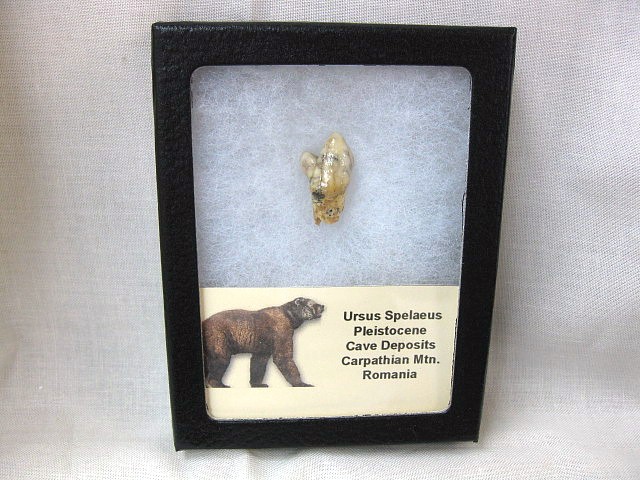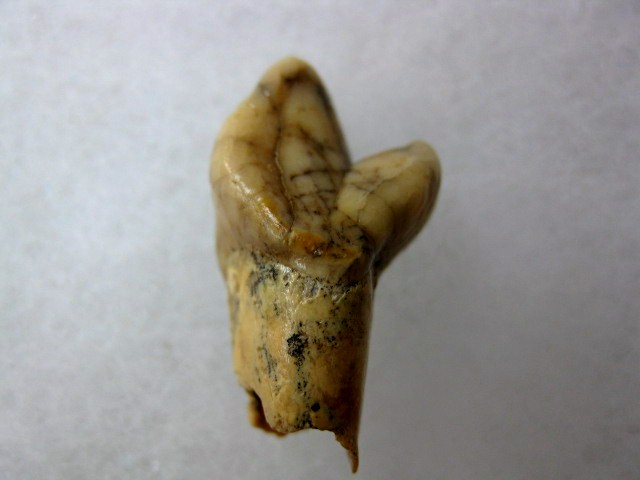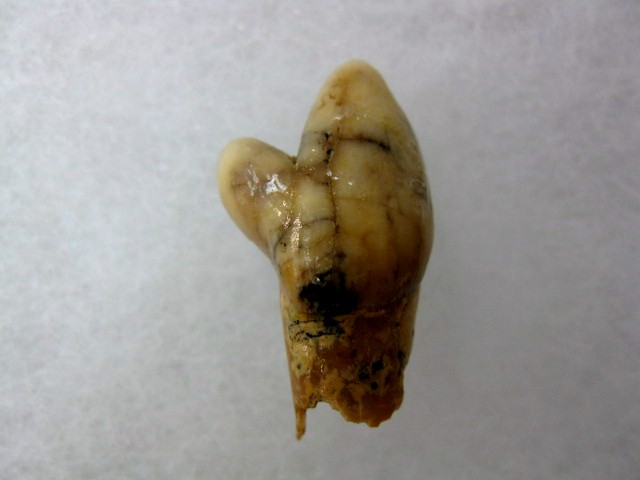Description
- Ursus spelaeus
- Pleistocene Age
- Cave Deposits
- Carpathian Mountains
- Romania
- Specimen measures approx. 15/16″ long
- Specimen will come in the 3.25″ x 4.25″ Riker Mount with label as shown
The cave bear (Ursus spelaeus) was a species of bear that lived in Europe during the Pleistocene and became extinct about 24,000 years ago during the Last Glacial Maximum. Both the name “cave” and the scientific name spelaeus are because fossils of this species were mostly found in caves, showing that cave bears may have spent more time in caves than the brown bear, which uses caves only for hibernation. Consequently, in the course of time, whole layers of bones, almost entire skeletons, were found in many caves. The cave bear had a very broad, domed skull with a steep forehead. Its stout body had long thighs, massive shins and in-turning feet, making it similar in skeletal structure to the brown bear. Cave bears were comparable in size to the largest modern-day bears. The average weight for males was 400 to 500 kilograms (880 to 1,100 lb), while females weighed 225 to 250 kg (495 to 550 lb).







